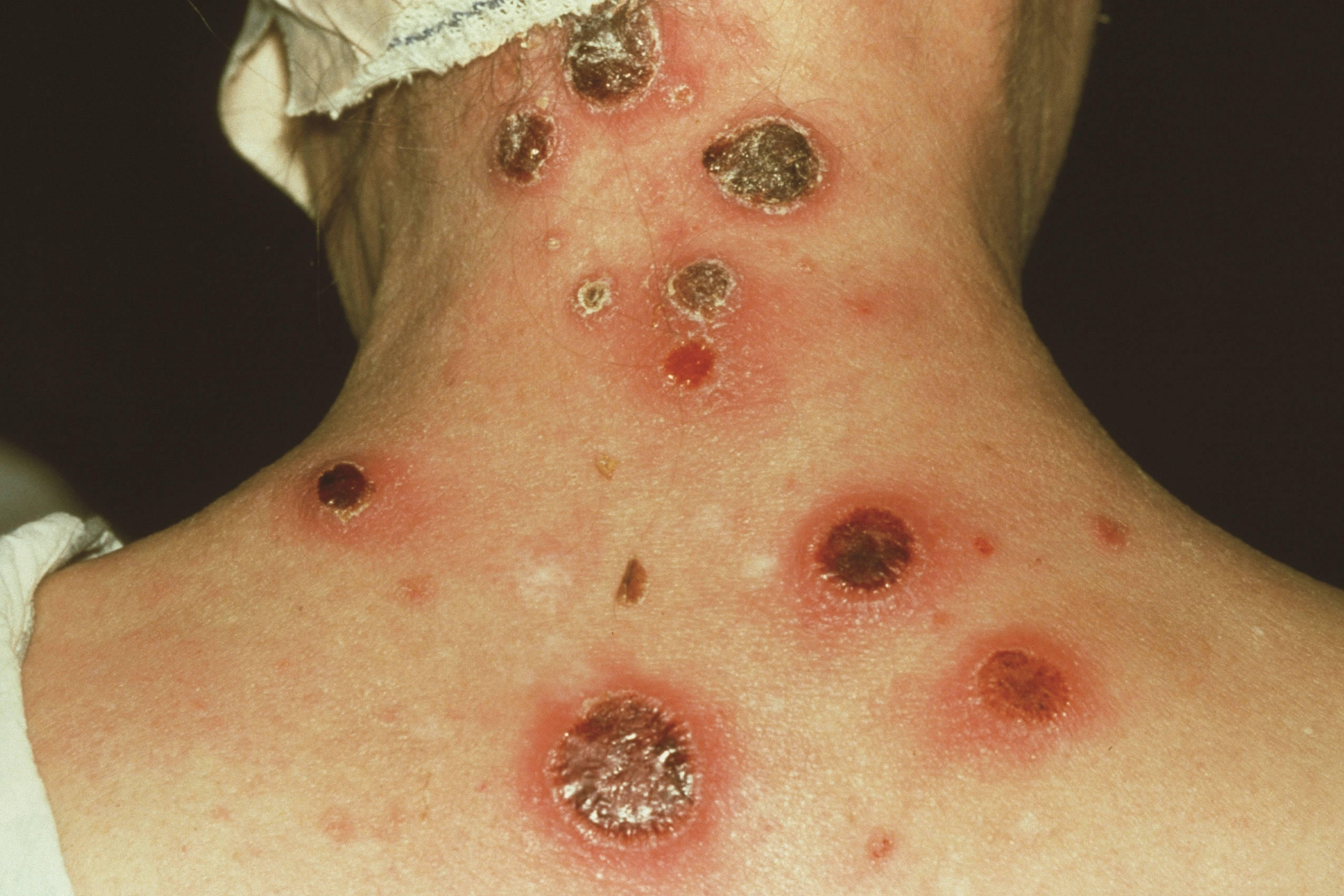
Key facts
- Syphilis is a sexually transmitted infection (STI).
- It is caused by bacteria and is easy to cure if found early.
- There are 4 stages of syphilis infection.
- If not treated, syphilis can lead to serious complications in your brain, eyes and heart.
What is syphilis?
Syphilis is a sexually transmitted infection (STI). It is caused by bacteria and can cause serious health problems if left untreated. However, it is easy to cure if found early.
Syphilis is rare in Australia, but the numbers are increasing, especially in men who have sex with men and young Aboriginal and Torres Strait Islander people living in Queensland, Northern Territory, Western Australia and South Australia. There has also been an increase in the rate of syphilis in Victoria in recent years.
What are the symptoms of syphilis?
Some people with syphilis have no symptoms, so you may not know you have it unless you get tested. There are 4 stages of syphilis infection: primary, secondary, latent and tertiary.
The signs and symptoms of syphilis depend on the stage of disease.
Primary syphilis occurs 3 or 4 weeks after infection (although it can take up to 90 days for the sore to appear). Symptoms may include a single painless sore usually about a centimetre big at the site where the infection entered the body — such as on the penis, vagina, cervix, mouth or anus. There may also be swollen lymph nodes.
The sore, or sometimes multiple sores, can go unnoticed because it is usually painless and may be hidden from view in areas such as the back of the throat, vagina or anus.
These sores usually go away by themselves after 3 to 6 weeks, even with no treatment. However, even though the sore heals, if you haven’t been treated, you are still infectious and can pass it on to others.
Secondary syphilis can occur 7 to 10 weeks after the initial infection. Symptoms can last for 6 months or more and may include:
- a red rash on the palms, soles, chest or back
- fever
- enlarged glands in the armpits and groin
- sore throat
- hair loss
- weight loss
- headaches
- pain in the bones, muscles and joints
- tiredness
- ulcers in the mouth, nasal cavity or genitals
- neurological symptoms
Latent (sleeping) syphilis generally has no symptoms and it is only picked up on blood tests. If syphilis is not treated at this stage, it can remain latent or develop into tertiary syphilis. Latent syphilis is infectious within the first 12 to 24 months.
Tertiary syphilis can appear anywhere from 5 to 20 years after primary infection. At this stage, the bacteria can damage almost any part of the body including the heart, brain, spinal cord, eyes and bones, resulting in heart disease, mental illness, blindness, deafness and neurological problems.
CHECK YOUR SYMPTOMS — Use the sexual health and lower body Symptom Checker and find out if you need to seek medical help.
How is syphilis spread?
Syphilis is usually spread through skin-to-skin contact during vaginal, anal or oral sex. It can also be spread by direct contact with open sores on areas such as the lips, mouth, breasts or genitals.
Syphilis is highly infectious during the time when a sore or rash is present. It can also be passed on before people know they have it and by people who don’t have any sores.
Syphilis can occasionally be spread by blood contamination, via needle-stick injury or sharing injecting equipment. It is extremely rare to get syphilis through a blood transfusion.
A pregnant woman with syphilis can pass the infection on to her baby via the placenta. This is called congenital syphilis.
Who is at risk?
In Australia, groups at particular risk of syphilis include:
- men who have sex with men
- female sexual partners of men who have sex with men
- Aboriginal and Torres Strait Islander people
- babies of mothers who have not had proper syphilis testing and treatment during pregnancy
- people who use or inject drugs
When should I see my doctor?
If you think you may have syphilis, it is important to see a doctor as soon as possible. Your doctor will confirm the diagnosis with testing and start treatment if required.
FIND A HEALTH SERVICE — The Service Finder can help you find doctors, pharmacies, hospitals and other health services.
ASK YOUR DOCTOR — Preparing for an appointment? Use the Question Builder for general tips on what to ask your GP or specialist.
How is syphilis diagnosed?
Your doctor will need to do a blood test to confirm a diagnosis of syphilis. The blood test detects the antibodies that the body produces to combat infection. A positive test shows that you have a current or past infection. It can take 3 months to develop antibodies, so the tests may be negative early on.
Your doctor may also do a swab test from a sore. When syphilis is diagnosed your doctor will report it to the local health authorities.
Pregnant women are routinely tested for syphilis.
It may also be a good idea to be tested for other sexually transmitted infections such as chlamydia, gonorrhoea and HIV.
Notifying partners
It is very important to tell previous sex partners who may have been exposed so that they can also be tested and treated if infected. Your doctor will help you decide who you need to tell and how you can tell them.
How is syphilis treated?
Syphilis is usually treated with penicillin given by an injection into muscle. There are other treatments if you are allergic to penicillin. The amount of time you need to be treated depends on the stage of the infection. You may need repeat blood tests at 3, 6 and 12 months after treatment to check that the treatment has worked.
After treatment with penicillin, you may feel like you have flu for 24 hours, with a fever, aches and pains. This will soon go away and you don’t need any extra treatment. Rest and drink plenty of fluids.
It is safest not to have sex, even with a condom, until 7 days after you have completed the full course of treatment. Syphilis is very infectious, particularly during the early stages.
What if I’m pregnant?
If found early in the pregnancy, syphilis can be treated and reduce the risk of damage to the baby. All women are recommended to have a syphilis test in the first 12 weeks of pregnancy or at the first antenatal visit.
What are the complications of syphilis?
Syphilis can lead to serious complications if not treated. It can spread throughout the body over many years (tertiary syphilis) and lead to major problems in the brain, eyes and heart.
If not treated, congenital syphilis can have major impacts, including miscarriage, stillbirth, prematurity, low birthweight or death shortly after birth. Babies born with syphilis can develop major problems with their brain, bones, blood, organs, vision and hearing.
Can syphilis be prevented?
Practising safe sex is the best way to prevent syphilis infection.
It is safest to:
- always use condoms with water-based lubricant during sex
- always use dental dams for oral sex
- limit the number of people you have sex with, or just have sex with one partner who isn’t already infected
- avoid sex with someone infected with syphilis or who has symptoms of syphilis until they have finished treatment
- have regular STI check-ups — every 6 to 12 months



